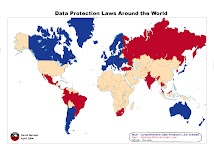According to Les Rosen, author of the Safe Hiring Manual and founder of the NAPBS (National Association of Professional Background Screeners), the six most common fabrications from job applicants are:
Claiming a degree not earned: Yes, believe it or not, applicants will make up a degree. Sometimes, they actually went to the school but never graduated. Some applicants may have had just a few credits to go, and decided to award themselves the degree anyway. On some occasions, an applicant will claim a degree from a school they did not even attend. The best practice for an employer is to state clearly on the application form that the applicant should list any school they want the employer to consider. In that way, if an applicant lies, the employer can act on the lack of truthfulness regardless of whether the educational requirement is part of the job requirements.
Diploma Mills or Fake Degree: A related issue is diploma mills or fake degrees that can be purchased online. For those that actually attended classes, read books, wrote papers and took tests to earn a diploma, you apparently did it the old fashioned way. Now, getting a “degree” is as easy as going online and using your credit card. There are even websites that will print out very convincing, fake degrees from nearly any school in America. In fact, the author obtained a degree for his dog in Business Administration from the University of Arizona-and the dog had been dead for ten years. A transcript was even obtained and the dog got a “B” in English! Some sites will even provide a phone number so an employer can call and verify the fake degree. Some of the degree mills even have fake accreditation agencies with names similar to real accreditation bodies, in order to give a fake accreditation for a fake school.
Job Title: Another area of faking is the job description or job title. Applicants can easily give their career an artificial boost by “promoting” themselves to a supervisor position, even if they never managed anyone.
Dates of Employment: Another concern for employers is applicants that cover up dates of employment in order to hide “employment gaps.” For some applicants, it may be a seemingly innocent attempt to hide the fact that it has taken awhile to get a new job. In other cases, the date fabrication can be more sinister, such as a person that spent time in custody for a crime who may be trying to hide that fact.
Compensation: A related issue is pay – applicants have been known to exaggerate compensation in order to have a better negotiating position in the new job.
Lack of Criminal Record: Nearly every application will have a question about past criminal conduct. Although employers may not “automatically” eliminate a job applicant without a showing of a “business necessity,” if the person lies, then the employer would have grounds to deny employment based upon dishonesty.
The common denominator in all of these: they can be all be discovered by a program of pre-employment screening. To quote a phrase popular in the 1980s. “Trust, but verify.”
Subscribe to:
Post Comments (Atom)




No comments:
Post a Comment